Featured Photo Above:
Addie Joos Benefit Game, July 24, 1911
(Color Restoration by Chris Whitehouse of They Played in Color website)
Baseball History Comes Alive Now Ranked As a Top Five Website by Feedspot Among All Baseball History Websites and Blogs!
(Check out Feedspot's list of the Top 35 Baseball History websites and blogs)

Guest Submissions from Our Readers Always Welcome! Click for details
Scroll Down to Read Today’s Essay
Subscribe to Baseball History Comes Alive for automatic updates. As a Free Bonus, you’ll get instant access to my Special Report: Gary’s Handy Dandy World Series Reference Guide!
“Baseball and the Korean War” Photo Gallery
Click on any image below to see photos in full size and to start Photo Gallery:
Today Vince Janoski turns his “what if” spotlight on major league baseball and the Korean War. He highlights a few baseball stars, among the many who served their country during this conflict, and analyses the effect the War had on their careers, As usual, Vince has done his homework and I think you’ll find interesting what he has to say. In the featured photo, we see a beautiful lithograph by artist Merv Corning of F9F USMC pilot Ted Williams. -GL
MAJOR LEAGUE VETERANS – KOREAN WAR CHAPTER
In a recent essay, I addressed several “what ifs” had World War II not interrupted the careers of certain MLB stars. In so doing, I did not mean to overlook those players who served during the Korean conflict. Three of those players immediately come to mind: Don Newcombe, Whitey Ford, and Willie Mays.
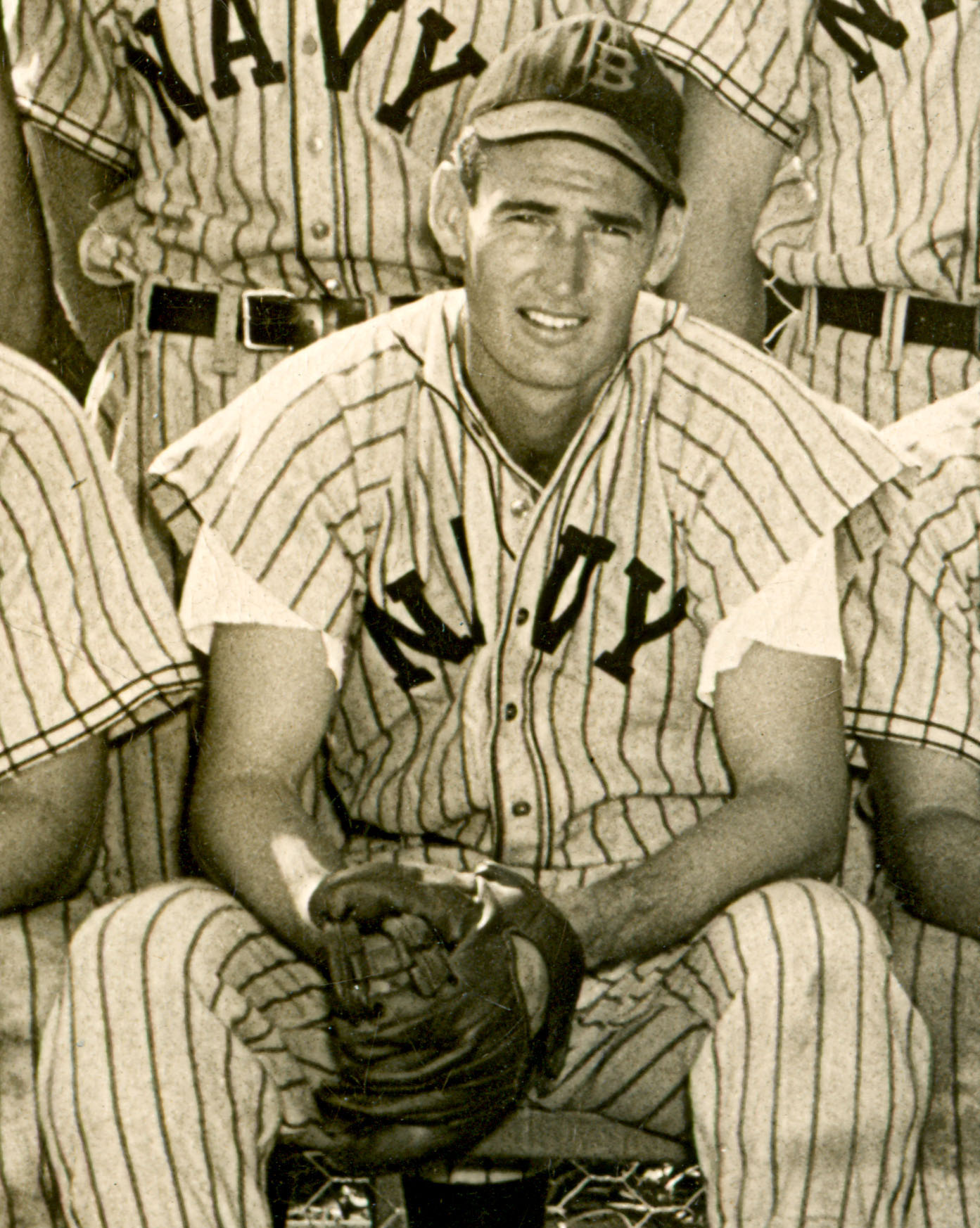
There were others, of course. Jerry Coleman, like Ted Williams, was a pilot who served both in WWII and Korea, rising to the rank of lieutenant colonel. He was third in the Rookie of the Year voting in 1949 and was an all-star the following year. He did not do much baseball-wise in 1951 before spending most of the 1952 and 1953 seasons in the Marines. While he was gone his second base job went to Billy Martin who in turn was inducted in time for the 1954 season. Upon his return, Coleman shared the second base position with Gil McDougald before surrendering the position full-time to McDougald the following year and to Martin thereafter.
Ernie Banks also served during the Korean Conflict. Banks was a member of the Kansas City Monarchs when he was called to duty in 1951. Upon his discharge in 1953, he returned to the Monarchs, then played 10 games for the Cubs at the end of the season. He was second in Rookie of the Year voting the following year but hit only 19 home runs. His career took off the following season, averaging slightly more than 39 home runs and nearly 110 RBIs in the next 8 years. It is hard to predict what Banks would have done in MLB had he not missed time for military service because it is uncertain when Banks would have left the Monarchs for the Cubs. Nevertheless, he served. An interesting footnote about Banks is that, although he entered the Hall of Fame as a shortstop, he played more games at first base than he did at short.
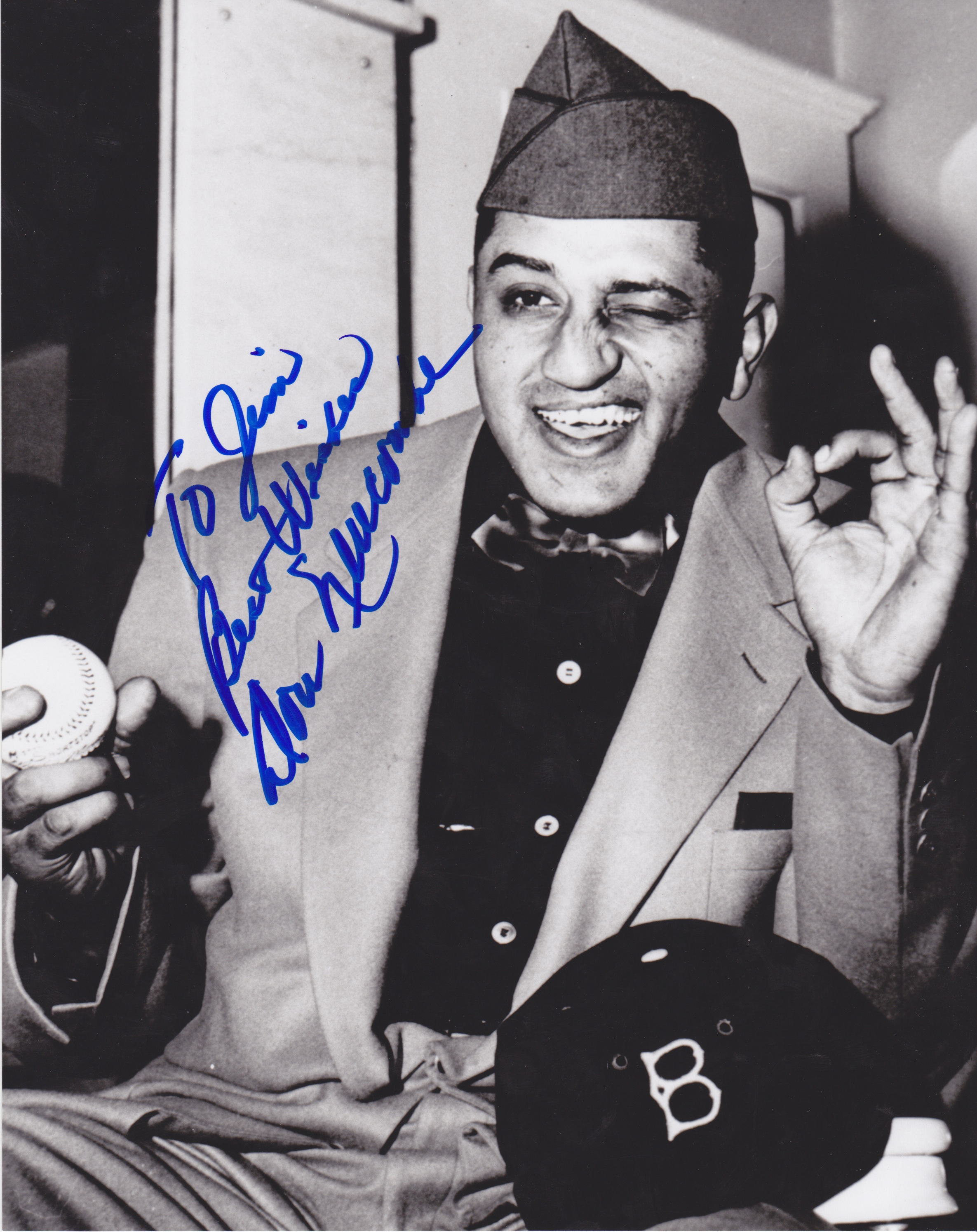
More predictable is Don Newcomb. Newcomb won 56 games for the Dodgers from 1949-1951, winning a Rookie of the Year award. He served in the military from 1952-1953. His return in 1954 was modest, going 9-8. But he won 47 games the following two seasons. Attributing the subpar 1954 season to rust accumulated during the two years in the service and thereby discounting that season, Newcomb won 103 games over a five-year period (1949-1951 and 1955-1956), an average of more than 20 per season or 40 for the two missed years. Added to his career total of 153 wins, the 40 would push Newcomb to 193 wins.
More importantly, though, Newcomb’s military service meant that the Dodgers were without arguably their best starting pitcher for two years. The Dodgers won the pennant in each of those seasons, but lost to the Yankees in the World Series both years in seven and six games, respectively. Would Newcomb have made a difference? Newcomb has notoriously bad World Series stats, going 0-4 with an ERA of 8.59 in 5 starts. Those figures are somewhat misleading, however. Newcomb lost the opening game of the 1949 series by a score of 1-0, and finished that series with an ERA of 3.09. It was in 1955 and 1956 when Newcomb was abysmal. Notwithstanding all of that, but for his service during the Korean War, Newcomb might have pushed the Dodgers past the Yankees in either the 1952 or 1953 series, thereby interrupting Casey Stengel’s Yankees’ record string of five consecutive World Series titles.
Ford came up to the majors in the middle of the 1950 season. He got into 20 games, pitching 112 innings, about half a season. He won 9 games. He spent the 1951 and 1952 seasons in the Army. In the four seasons following his discharge, he averaged nearly 18 wins (17.75 to be exact). For his entire career, in the 12 seasons that he had 28 or more starts, he also averaged nearly 18 wins (17.67 to be exact). It is not unreasonable to assume that Ford would have won 36 games (18 x 2) in the two seasons missed due to military service. Ford wound up with 236 wins. Absent service to his country, it can be estimated that Ford would have won 272 games. That would have placed him at the time of his retirement 10th on the all-time win list among pitchers who pitched solely in the 20th century.
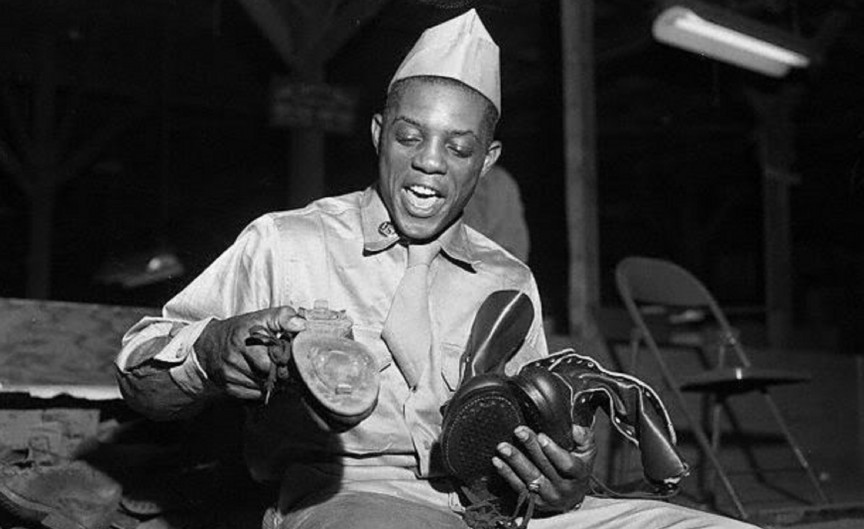
Then, there is Willie Mays. Most significant is Willie Mays. Mays came up to the majors on May 24, 1951, and hit 20 home runs in 524 plate appearances. He was inducted into Army on May 29, 1952, after hitting four homers during that season. He missed the entire 1953 season. In the 12 seasons following his discharge, Mays averaged slightly more than 40 home runs per season. Subtracting the four he actually did hit before his induction in 1952, would result in Mays hitting an additional 76 home runs had he not missed most of two seasons – (40 x 2) – 4 = 76. Mays hit 660 for his career. Add the missing 76 and Mays’ total would be 736, 22 more than Babe Ruth. At the time of Mays’ retirement after the 1973 season, Hank Aaron had hit 713 home runs. Aaron didn’t break Ruth’s record until the start of the 1974 season. But for the Korean War, it would have been Mays, not Aaron that broke Ruth’s all-time home run record, sometime in the 1971 season. The 1971 season was a remarkable one for Mays in that he led the National League in on-base percentage and walks and finished 19th in the MVP voting at age 40. He played 48 games at first base that year.
Aaron would have ultimately surpassed Mays, but not until the 1975 season. Mays, not Aaron, would have gotten the hate mail and death threats. After the 1971 season, Mays would have been able to retire with glory and honors as the all-time home run champ and not played his final two years with the Mets where most concur, he stayed too long. Even if Mays had hit only 60 home runs instead of the estimated 76 during the time he missed in the service, he still would have broken Ruth’s record albeit probably sometime in 1972 or 1973, still before Aaron hit #715. The Giants, recognizing the financial value of a player about to break the all-time home run record, would not have traded Mays to the Mets. Remaining with the Giants, Mays still would not be the player he was earlier in his career, but his pursuit of Ruth’s record would have overshadowed any diminution of his playing skills. His reputation would not have been lessened.
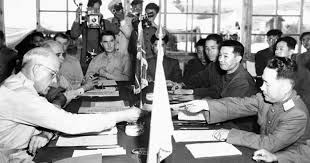
So, in conclusion, had North Korea not invaded the South on June 25, 1950, Billy Martin would not have gotten his start with the Yankees or, for that matter in baseball, Casey Stengel may not have the record for most consecutive World Series titles, and Willie Mays, not Hank Aaron, would have broken Babe Ruth’s all-time home run record. Not a bad bunch of “what ifs”.
Vince Jankoski
Subscribe to our website, Baseball History Comes Alive with over 1400 fully categorized baseball essays and photo galleries, now surpassing the one million hits mark with 1.073 million hits and over 900 subscribers: https://wp.me/P7a04E-2he
Information: Excerpts edited from
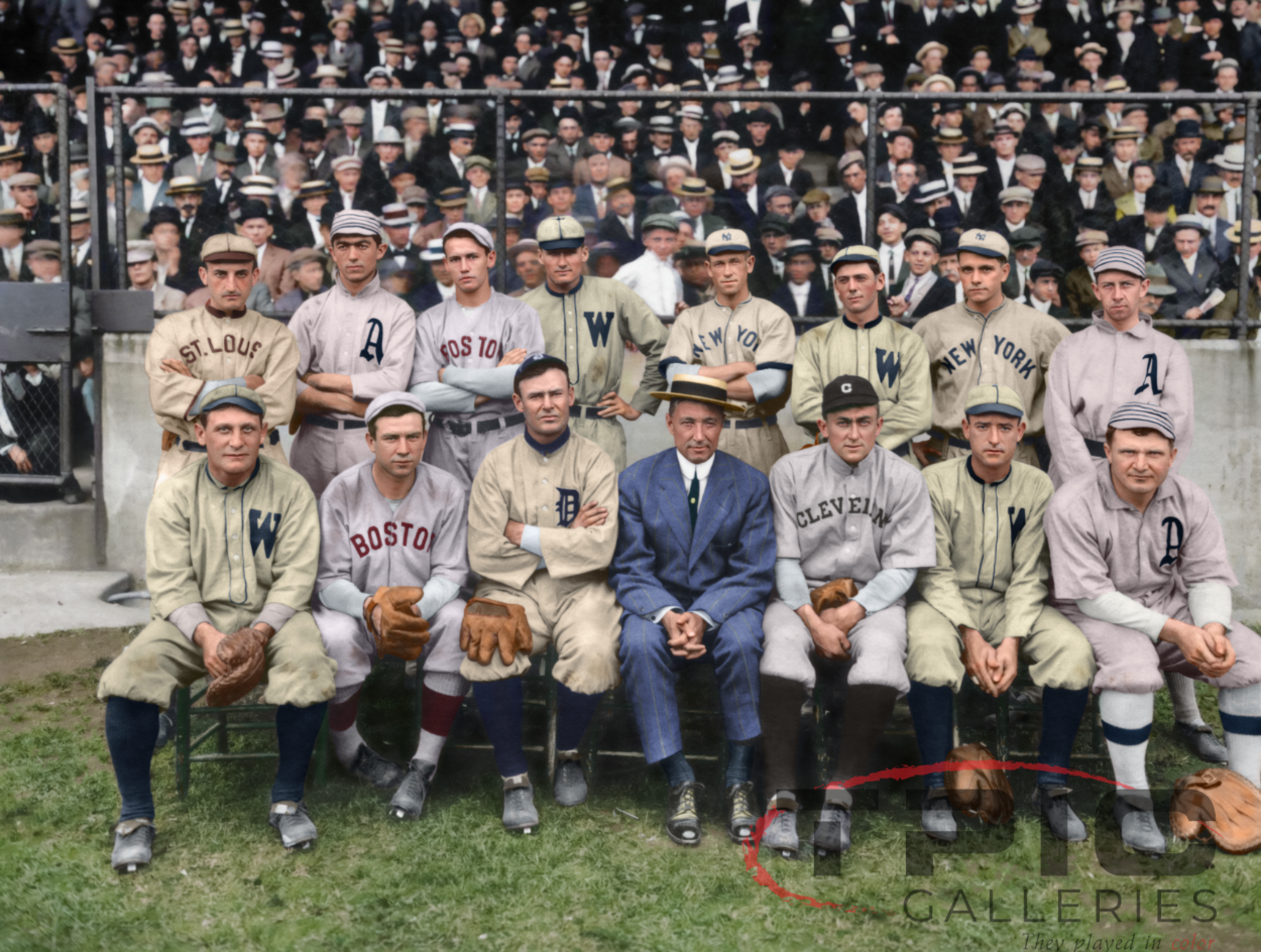
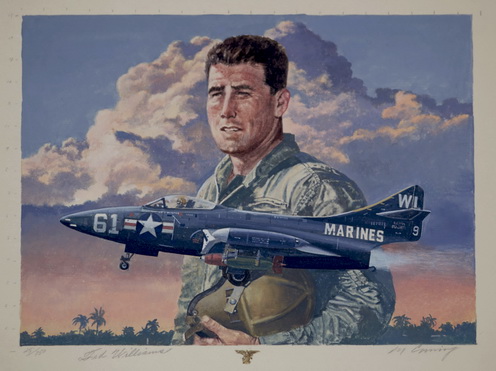
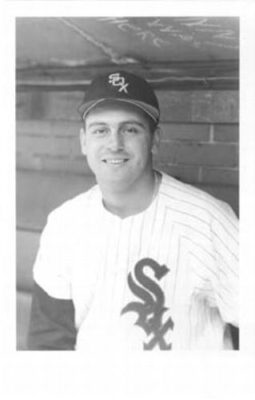
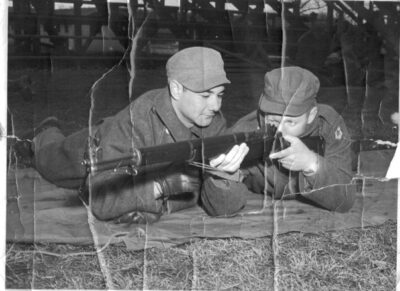
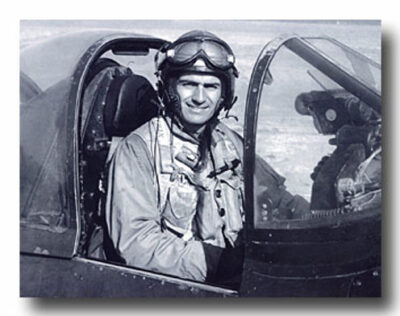
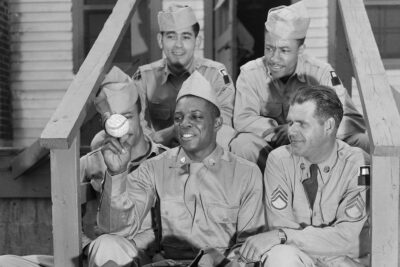
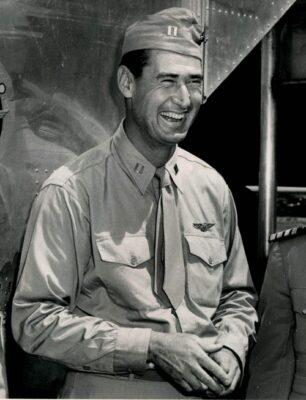
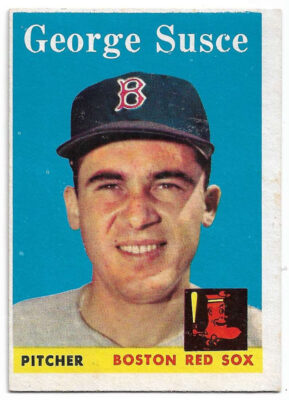
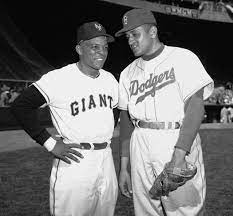
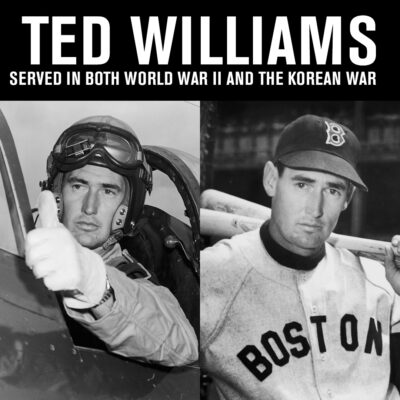
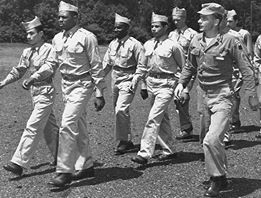
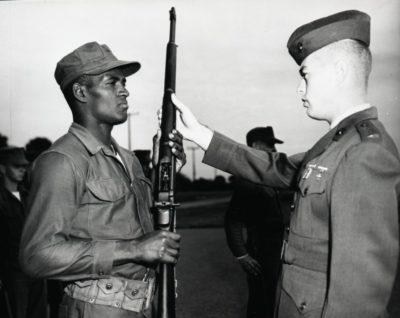
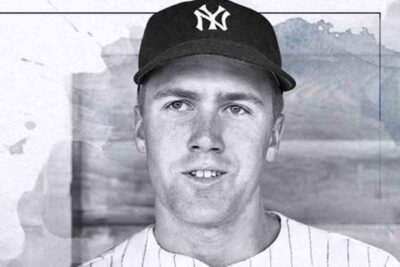
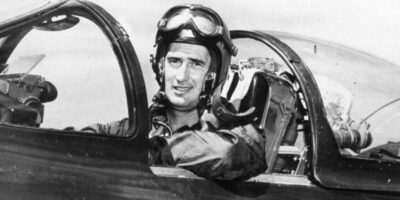

Great article on our Korean War vets. The Willie Mays scenario was quite interesting.
Thanks Ken!
Nice article by Mr. Jankoski. Because I live near San Diego, I know of Jerry Coleman’s military history well. Due to the fact that S.D. is a military town, during Coleman’s long tenure as a Padres broadcaster {and since his passing}, his military service has been well known and documented. He often said that his proudest achievements were serving his country, not his WS success as a Yankee or his ’49 ROY Award. He was {and still is} an extremely loved icon here. Same can be said of Ted Williams; of course, who was born in San Diego. Although we are absolutely thankful and grateful for their wartime service, most Korean War vet players {including Mays & Ford} did not see any overseas duty conflict…they were stationed stateside, unlike Coleman and Williams who saw combat action in both WWII and Korea. Thnx for the post, Gary. “PLAY BALL” !
Thanks Tom…great comments as always!